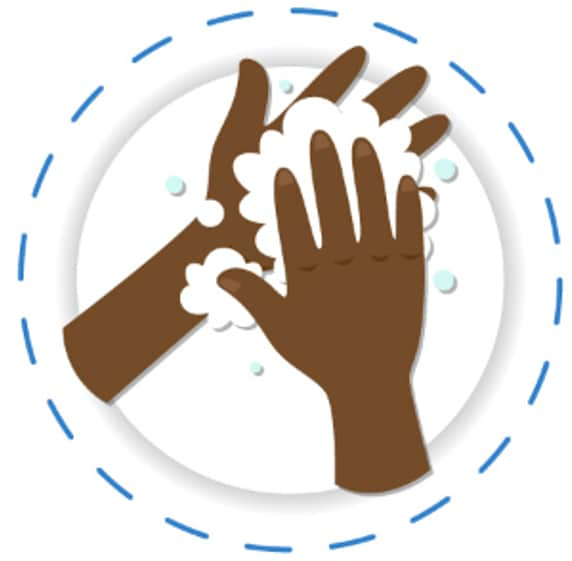Key points
- There is no vaccine or treatment to prevent a parvovirus B19 infection.
- Follow core respiratory virus prevention strategies to prevent the spread of parvovirus B19.
- See your healthcare provider if you are infected while pregnant or have an underlying blood disorder or weakened immune system.

How it spreads
Parvovirus B19 can spread from person to person:
- through respiratory particles
- through blood or blood products
- during pregnancy (from mother to baby)
Facts about Parvovirus B19 Infection
Parvovirus B19 Only Infects People
Since parvovirus B19 only infects people, you cannot get the virus from a dog or cat. Also, dogs and cats cannot get parvovirus B19 from an infected person.
Dogs and cats can get infected with other parvoviruses that do not infect people.
Risk to others
You are most contagious during the first few days of having symptoms. You are unlikely to be contagious after you get later symptoms such as rash and joint pain. It is usually safe to go back to work or school after the rash appears.
If you have a drop in blood count (anemia), you may remain contagious until your blood count improves.
If you have a parvovirus B19 infection and have a weakened immune system, you may be contagious for a longer time.
Complications from parvovirus B19
Preventing respiratory viruses
There is no vaccine or treatment that can prevent parvovirus B19 infection. To prevent the spread of parvovirus B19, follow core prevention strategies for respiratory viruses:
- Practice good hygiene (practices that improve cleanliness)
- Cover your mouth and nose with a tissue when you cough or sneeze. If you don't have a tissue, cough or sneeze into your elbow, not your hands.
- Learn and use proper handwashing technique. Frequent handwashing is especially important in childcare settings and healthcare facilities.
- Clean frequently touched surfaces, such as countertops, handrails, and doorknobs, regularly.
- Take steps for cleaner air
- When you have symptoms of a respiratory virus, take steps to prevent spread
